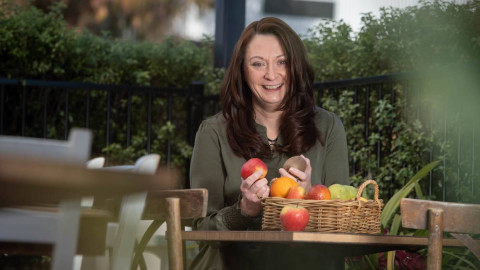
A team of researchers in Australia have found a link between children's eating habits and autism.
The Edith Cowan University study found children who ate a less varied diet between one and three years old were more likely to score higher on a test for autistic traits as adults.
Many of the 811 young people examined who reported a common dislike for certain foods displayed personality traits associated with autism, including difficulties with socialising, communication and imagination and the ability to switch focus from one thing to another thing.
The team said the findings pointed towards diet as a potential early screening tool for autism.
Lead researcher Catherine Panossian said children with autism often had feeding behaviours that went beyond normal picky eating.
She said the research was not showing a causal link between food and autistic traits; it demonstrated children with autism could have sensory sensitivities which often led to a restricted diet.
Ms Panossian said including a dietary screening tool as part of the Autism Spectrum Disorder diagnosis could encourage early intervention for children at risk of nutritional deficiencies.
"This is important because seriously restricted eating habits in young children can affect their cognitive, motor and behavioural development and in turn their ability to communicate," Ms Panossian said.
Vikki Nash is the mother of two teenage boys with autism who works with similar families in Canberra to help manage meal times.
She said the study was important, not just in what it offered children with autistic traits, but also their families.
"When you sit down with your child who is just skin and bone and you can't go out to restaurants because they'd be under the table or they'd run away, it's awful," Mrs Nash said.
After working as an animal nutritionist, Mrs Nash retrained to work with children to try to better understand her young son's behaviour with food.
"We cried, we screamed, we had sticker charts, we had consequences - you name it," she said. "I just could not get my kids to eat."
Mrs Nash said her eldest son had trouble breastfeeding outside the house as a baby and refused to feed at childcare.
She said for years she was treated like a crazy mum because no one could say why her son didn't quite fit in at playgroups.
"I was being told it was all in my head, that I was depressed, that there was nothing wrong with him," she said.
It wasn't until a preschool teacher suggested someone assess him for autism that he finally received a diagnosis at five years old.
When her younger son showed a similar disinterest in food it was a warning sign.
"His brother we had diagnosed at three years old, which was fantastic because he got to go to early intervention school," she said.
Mrs Nash said bright colours and intense flavours could often be too much for children with autism. She said while that wasn't a blanket rule, it often led to a reliance on beige or white diets typically consisting of white bread, chicken nuggets and chips.
"When children get older this could change to ice cream, two-minute noodles, or plain pasta but in most cases the food is bland in colour and has a texture that is easily chewed and swallowed," she said.
Mrs Nash works with families towards more relaxed meal times which meant placing dishes in the centre of the table and encouraging but not forcing children to take a bit everything.
"It's removing the pressure from force-feeding," she said.
from https://www.canberratimes.com.au/story/…